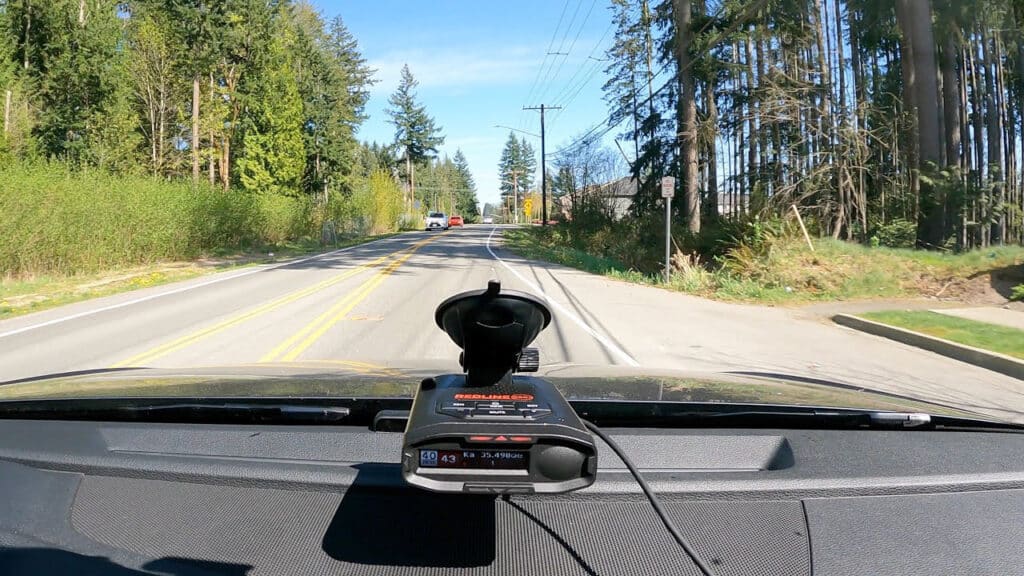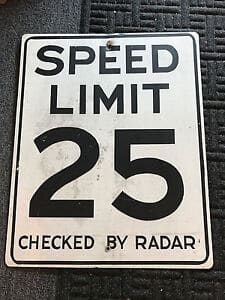Whether you have a tendency to speed up while driving or simply wish to have some kind of assistance to keep you from doing so, a radar detector might be the right device for you.
Its sole purpose is to detect any radar guns or speed traps nearby that might be in place nearby. Radar detectors give you a prior warning or signal that you can use as a cue to slow down or to simply make sure that you are moving at an appropriate speed.
These radar detectors can be effective in helping you maintain a proper speed on the road, but the fact remains that they are not always legal. In the United States, however, only a handful of states ban these radar detectors, with most others allowing their usage.
If you’re wondering whether radar detectors are legal in North Carolina, the answer is yes, they are, but only as long as you use them within the provisions of the law. Read on to learn everything you need to know about the subject.
Relevant Restrictions

Are radar detectors legal in North Carolina? We know the answer is yes, but there are still some reservations in place that you will need to follow in this state.
Here are some of the exceptions to the law, along with what you need to know before installing a radar detector in your car.
Windshield Mounting
You cannot mount any devices on the windshield of your vehicle in North Carolina. This includes radar detectors, since they fall under the category of “non-transparent” objects which are banned by the state for use on the windshield.
This provision is meant to protect the safety of the drivers and passengers so that their vision is not compromised and so that the mount does not end up falling over and causing trouble.
For suitable and legal mounting, dashboards and any other comfortable spots should work.
Privately Owned vs Commercially Owned Vehicles

Regardless of the type of vehicle you own, as long as it falls under private ownership, you are allowed to attach, mount and use radar detectors in North Carolina.
The restriction here is on commercial vehicles that weigh more than 10,000 pounds including payload. Only those commercial vehicles that weigh less than 10,000 lbs are given the green light to have these devices mounted.
Driving in a Military Area
If you come across a military area, you will likely be pulled over before you enter it. At this point, if you have a radar detector, you’re going to have to power it down and remove it to safely drive through the region.
If you fail to do this, you will not be allowed to enter the area at all and might also have to pay a heafty fine.
In What States Are Radar Detectors Illegal?
There are a couple of states like Virginia and Washington, D.C. where they are illegal.
These states require you disconnect and switch off your radar detectors if you are within their borders.
Radar Detector Common Myths
It is believed that the main danger associated with radar detectors is that they could block the driver’s view or cause deliberate violations. This is not true if the driver makes wise and valid use of these tools.
Another piece of misinformation that people believe is that radar detectors can get you out of a speeding ticket.
If you are speeding, the radar guns might have already caught up with, not to mention that the police might have other technology and techniques that you may not be aware of.
State of North Carolina Info

The state of North Carolina borders 4 other states — Virginia, Tennessee, South Carolina, and Georgia.
It is situated on the Atlantic coast midway.
North Carolina gained statehood in 1789. It was the 12th state to do so, making it part of the original 13. The state features the wettest terrain in the country, with numerous water bodies and marshlands.
Population: 10.67 million
Capital: Raleigh
Registered vehicles: 8,739,280
Total lane miles: 229,011
Number of highways: 9

